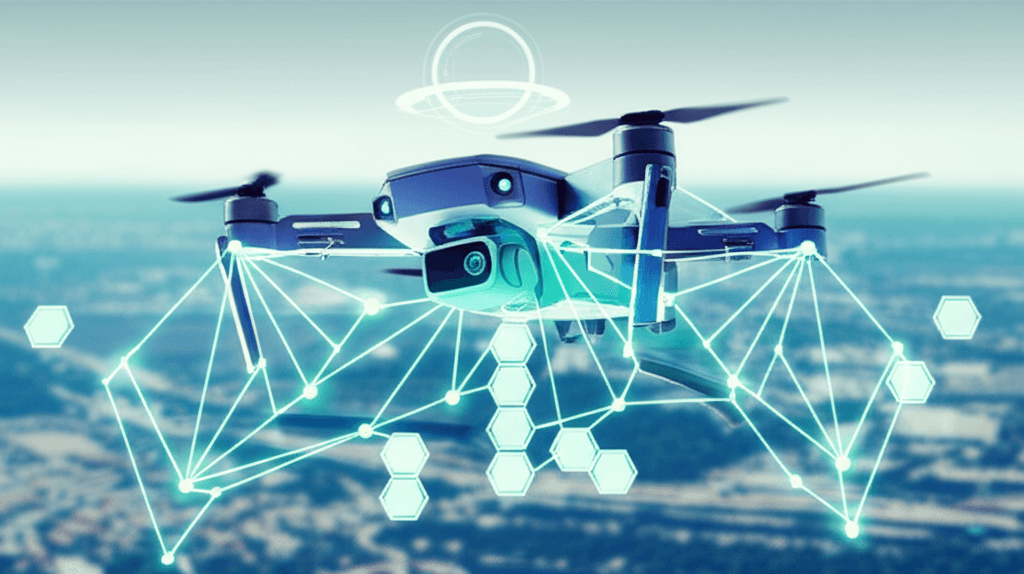DGCA Certifies Marut Drones Skyswift 56, Revolutionizing India's Tactical Surveillance
India's first dual-certified drone, the backpack-portable Skyswift 56 revolutionizes surveillance, training, and AI-powered security operations.
August 22, 2025

In a significant development for India's burgeoning drone industry, Hyderabad-based Marut Drones has secured Directorate General of Civil Aviation (DGCA) type certification for its Skyswift 56 surveillance drone. This official approval marks a critical milestone, enabling the advanced rotorcraft to be legally deployed for a range of sensitive operations across the country. The certification validates the drone's design, safety, and operational standards, paving the way for its adoption by security agencies, law enforcement, and for high-precision mapping and training purposes. The Skyswift 56 is engineered for rapid deployment, a feature of critical importance for frontline personnel; the entire system can be made operational in under two minutes and is portable enough to be carried in a backpack.[1][2][3] This combination of regulatory approval and tactical design positions Marut Drones to address the escalating demand for sophisticated unmanned aerial vehicle (UAV) solutions in both public and private sectors.
The Skyswift 56 is a small category quadcopter-class rotorcraft meticulously designed for versatility and performance in demanding field conditions.[1] Its core strength lies in its swappable payload system, which allows operators to quickly adapt the drone for various missions.[4] The platform can be equipped with a first-person-view (FPV) camera, a 24MP mapping camera with Post-Processing Kinematic (PPK) support for high-accuracy surveys, a 4K surveillance camera for detailed reconnaissance, and thermal imaging capabilities for low-visibility and night operations.[1][3] This flexibility makes it a multi-faceted tool for covert reconnaissance, patrolling, law enforcement, and public safety missions.[5] Key technical specifications include a maximum speed of 15 meters per second, a flight ceiling of 120 meters, and a range of up to 1500 meters.[4] Flight endurance varies with the payload, ranging from 52 to 56 minutes, a crucial factor for sustained surveillance tasks.[4] Safety and operational integrity are bolstered by features like anti-collision strobe lights, geo-fencing to keep the drone within predefined boundaries, and an autonomous Return to Launch (RTL) function.[4]
Securing DGCA type certification is a non-negotiable prerequisite for legally operating drones weighing over 250 grams in Indian airspace.[6] This rigorous approval process, governed by the UAS Rules-2021, involves extensive quality checks and a battery of tests conducted in NABL-accredited laboratories.[7][8] Drones are subjected to material, environmental, and operational assessments to guarantee they are safe, secure, and reliable.[7][8] For Marut Drones, this certification is a significant market differentiator, making it the first Indian company to hold dual DGCA certifications for both manufacturing and remote pilot training (RPTO).[1][5] This dual status allows Marut not only to sell certified hardware but also to train the next generation of pilots on approved systems, directly addressing a critical skills gap in the nation.[1] With India's drone fleet projected to grow from over 100,000 to one million by 2027, the demand for skilled and certified pilots is immense. The Skyswift 56 is poised to play a key role in this ecosystem, serving as a robust platform for field training.[1]
The introduction of the DGCA-certified Skyswift 56 directly intersects with the rapid integration of artificial intelligence into surveillance and security technologies.[9] While the drone itself provides the aerial platform, it is the application of AI and machine learning algorithms that transforms it from a mere flying camera into an intelligent security asset.[10] AI-powered drones are increasingly vital for urban policing, monitoring critical infrastructure, and securing large-scale events.[9] These systems can autonomously identify patterns, detect anomalies, and flag suspicious activities without constant human supervision, significantly enhancing the efficiency of security operations.[9][10] For instance, AI can enable a drone like the Skyswift 56 to perform predictive maintenance inspections on industrial equipment or assist in search-and-rescue missions during natural disasters by processing vast amounts of visual data in real-time.[9][4] The Indian Army is already leveraging AI in its surveillance, reconnaissance, and logistics operations, using intelligent drones and satellite systems to gather real-time data for strategic decision-making.[11] Marut Drones has positioned itself at this technological confluence, pioneering the use of IoT, AI, and data analytics within the drone industry to build comprehensive solutions.[12] The Skyswift 56, with its versatile payload capacity, serves as an ideal vehicle for deploying these advanced AI-driven analytics, whether for security, agricultural monitoring, or disaster management.[4][13]
In conclusion, the DGCA type certification of the Marut Drones Skyswift 56 is more than a regulatory approval; it is a catalyst for advancing India's tactical surveillance capabilities and bolstering the domestic drone manufacturing ecosystem. By providing a versatile, rapidly deployable, and indigenously developed platform, Marut Drones is empowering frontline security personnel and law enforcement agencies with a critical technological edge.[5] The drone's role as a certified training aircraft will also be instrumental in cultivating the skilled workforce required to support the nation's burgeoning UAV industry.[1] As artificial intelligence continues to redefine the possibilities of unmanned systems, platforms like the Skyswift 56 will become increasingly central to national security, public safety, and industrial automation, solidifying the role of homegrown innovation in shaping India's technological future.[9]